
In 1790, a small number of men started a small pottery factory in Sarreguemines on the river Sarre in North East France.
This area used to be called Saargemunde and this piece of land then belonged to Germany.
In 1800, the factory was taken over by Paul Utzschneider from Bavaria, he ensured that Sarreguemines pottery was put on the map. Even Napoleon placed several orders with the factory and when the metro was built in Paris, Sarreguemines supplied the tiles for the walls. Around 1870, the factory starts to manufacture Majolica with a patent on the beautiful glaze.
The factory makes vases, flower pots, tiles, crockery, etc. and is sold all over the world.
During the Second World War, the factory was seized and from 1942 to 1945 it came under the management of Villeroy & Boch.
In the early 20th century, the factory hires artists to design panels of decorative tiles for department stores and shops, which proves to be a great success.
After the war in 1978, the factory was taken over by Luneville-Badonviller-St-Clément. In 1978 they stopped making crockery.
In 2002, employees and managers take over the factory under the name Ceramiques de Sarreguemines, but in 2007 the curtain falls on the factory.
Sarrequemines now houses the Pottery Museum where you can follow the entire history of this factory.
The factory also made various commemorative souvenirs for the inauguration of Queen Wilhelmina in 1898, whether for export to the Netherlands or on order from a Dutch buyer, this is unknown. The best known is a series of earthenware crockery with a portrait of Wilhelmina surrounded by little angels.
Here are examples from our collection:
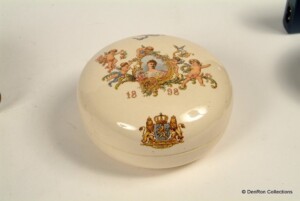
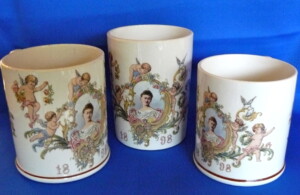
BonBon Dish Beaker & Mugs in various sizes
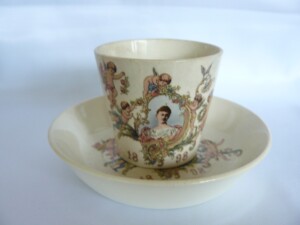
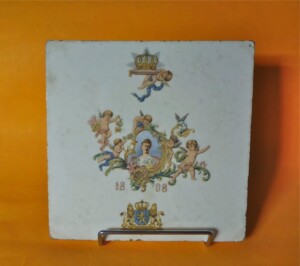
Cup & Saucer Tile
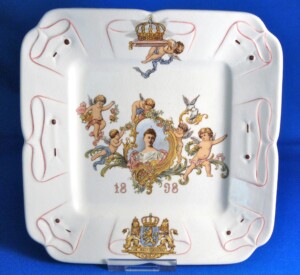
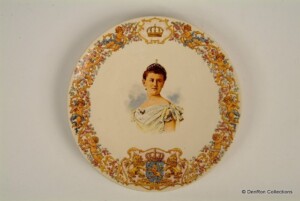
Ribbon Plate Plates in various sizes
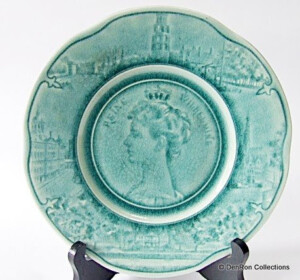
Majolica plate
Share This Article












